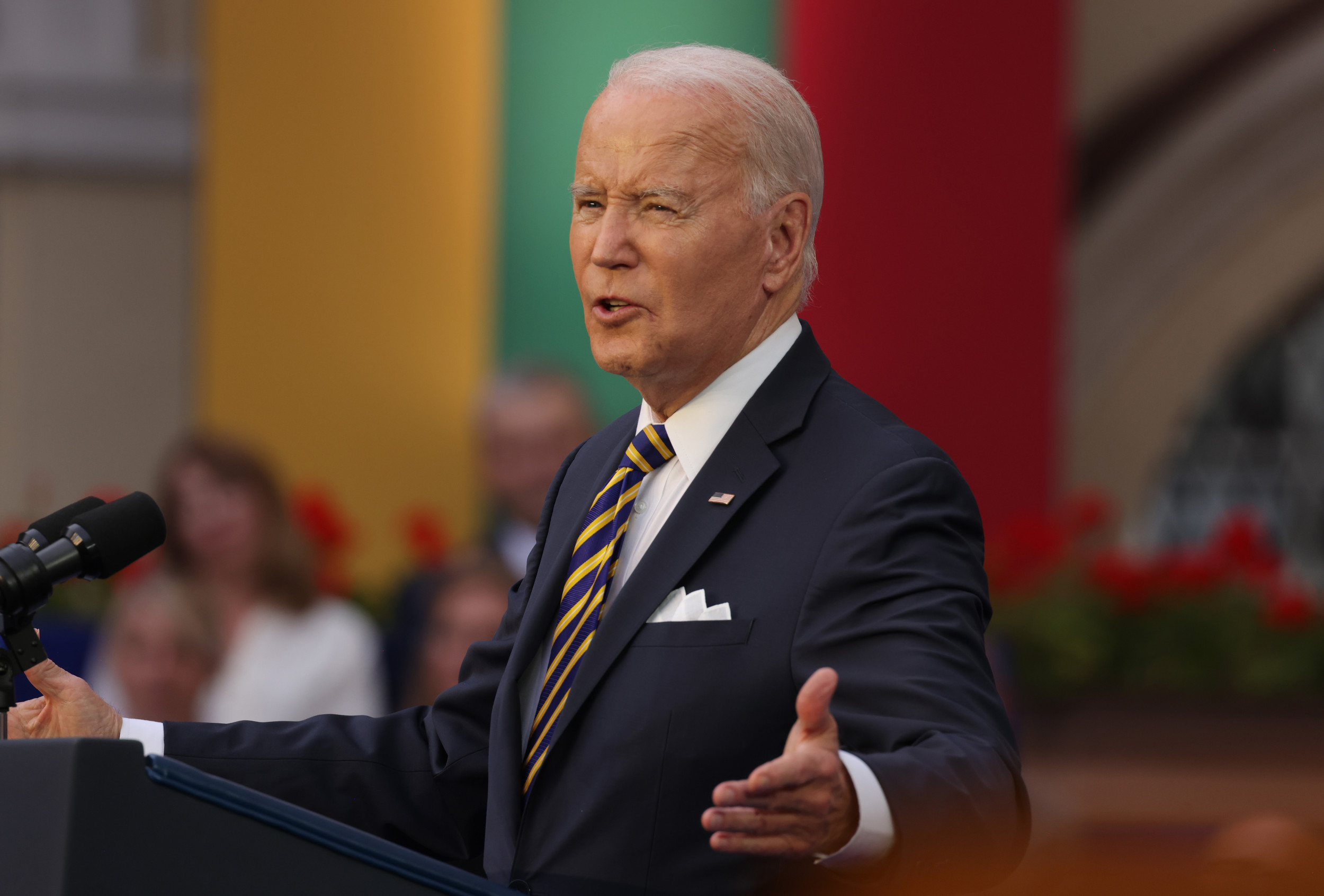Biden’s Role in NATO
Biden nato – Since becoming President, Biden has been actively involved in NATO, playing a significant role in shaping the organization’s agenda and strengthening its unity.
Biden’s leadership within NATO has been evident in his diplomatic efforts and negotiations with other member states. He has worked closely with European leaders to address common security challenges, including the ongoing conflict in Ukraine and the rise of China’s military power.
Biden’s pledge to strengthen NATO’s collective defense has been welcomed by its members, who have been concerned about Russia’s aggressive actions. NATO members have been increasing their defense spending and are working to improve their military capabilities. Biden’s commitment to NATO is a sign of the United States’ continued commitment to the alliance and its members.
Biden’s Diplomatic Initiatives, Biden nato
Biden has undertaken several diplomatic initiatives to strengthen NATO’s cohesion and effectiveness. These initiatives include:
- Convening a NATO summit in June 2021, where member states reaffirmed their commitment to collective defense and agreed on a new Strategic Concept for the alliance.
- Engaging in bilateral talks with key NATO allies, such as Germany, France, and the United Kingdom, to discuss shared security concerns and coordinate responses to emerging threats.
- Visiting NATO headquarters in Brussels in March 2022, where he met with NATO Secretary General Jens Stoltenberg and other alliance leaders to discuss the ongoing conflict in Ukraine.
Biden’s Role in Strengthening NATO’s Unity
Biden’s efforts have played a crucial role in strengthening NATO’s unity and resolve in the face of external challenges. His diplomatic initiatives have helped to build consensus among member states on key security issues, while his leadership has provided a sense of direction and purpose for the alliance.
Biden’s unwavering commitment to NATO has been a defining feature of his presidency. In a recent interview , he reaffirmed his belief in the alliance’s importance, particularly in the face of Russia’s aggression. Biden’s strong stance on NATO underscores his determination to uphold the principles of collective security and deter potential threats to the Euro-Atlantic region.
Biden’s commitment to NATO has been evident in his actions and rhetoric. He has repeatedly emphasized the importance of the alliance as a cornerstone of European security and has pledged to continue working with NATO members to address common threats.
NATO’s Response to the Ukraine Crisis: Biden Nato
NATO’s response to the Ukraine crisis has been multifaceted, involving both political and military measures. The alliance has condemned Russia’s actions, imposed sanctions, and provided military aid to Ukraine. NATO has also strengthened its presence in Eastern Europe and increased its military readiness.
NATO’s Political Response
NATO has strongly condemned Russia’s actions in Ukraine, calling them a “flagrant violation of international law.” The alliance has also imposed sanctions on Russia, targeting its financial system, energy sector, and defense industry. NATO has also provided political and diplomatic support to Ukraine, including through the provision of humanitarian aid.
NATO’s Military Response
NATO has also taken a number of military measures in response to the Ukraine crisis. The alliance has increased its military presence in Eastern Europe, deploying additional troops, ships, and aircraft to the region. NATO has also increased its military readiness, conducting exercises and drills to ensure that it is prepared to respond to any potential threats.
Challenges and Consequences
NATO’s response to the Ukraine crisis has been met with a number of challenges. One challenge is the need to balance the need to deter Russia with the need to avoid a wider conflict. Another challenge is the need to maintain unity within the alliance, as some members are more willing than others to take a tough stance against Russia.
The consequences of NATO’s response to the Ukraine crisis are still unfolding. However, it is clear that the crisis has had a significant impact on the alliance, both politically and militarily. NATO has been forced to adapt to a new security environment, and it is likely that the alliance will continue to play a major role in the Ukraine crisis for the foreseeable future.
The Future of NATO under Biden’s Presidency

President Biden’s leadership presents both opportunities and challenges for the future of NATO. Biden has pledged to revitalize the alliance and restore trust among its members. He has also emphasized the need for NATO to adapt to the changing global security environment, including the rise of new threats such as cyberattacks and hybrid warfare.
NATO’s Strategic Priorities and Goals under Biden’s Guidance
Under Biden’s leadership, NATO is likely to focus on the following strategic priorities:
- Strengthening the alliance’s collective defense capabilities
- Countering new threats, such as cyberattacks and hybrid warfare
- Promoting democracy and human rights
- Building partnerships with other countries and organizations
